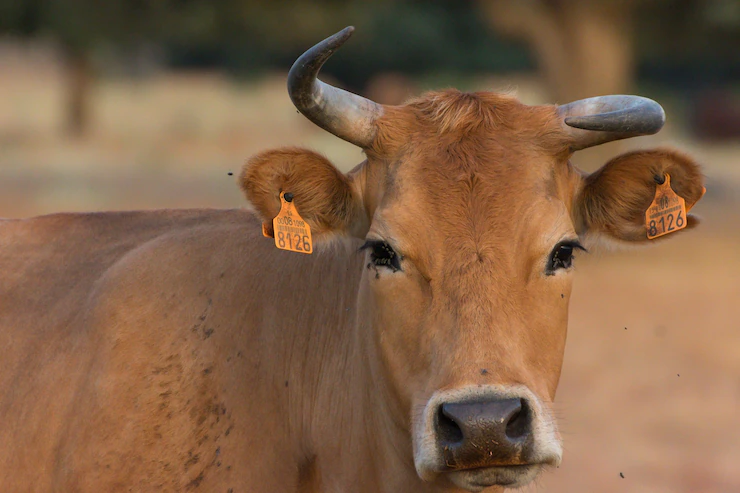Theileriosis is a tick-borne disease that affects cattle and other ruminant animals. It is caused by various species of the protozoan parasite of the genus Theileria. The symptoms of Theileriosis can vary depending on the species of the parasite involved and the immune response of the affected animal. Here are some common symptoms to look out for in cattle:
- Fever: Infected cattle often develop a high fever, which is one of the initial signs of the disease.
- Anemia: Theileriosis can cause severe anemia in cattle. You may notice pale mucous membranes, such as the gums and conjunctiva of the eyes.
- Loss of appetite: Infected animals may show a decreased or complete loss of appetite, leading to weight loss.
- Weakness and lethargy: Cattle with Theileriosis often appear weak and lethargic. They may be reluctant to move or have difficulty standing.
- Enlarged lymph nodes: Swollen lymph nodes, especially under the jaw or in the neck region, can be observed in affected animals.
- Respiratory distress: Some cattle may exhibit respiratory symptoms such as rapid or labored breathing, coughing, and nasal discharge.
- Jaundice: In severe cases, Theileriosis can lead to jaundice, characterized by yellowing of the eyes, gums, and skin.
- Decreased milk production: Infected dairy cows may experience a sudden drop in milk production.
- Abortions: Pregnant cows infected with Theileria may experience spontaneous abortions or give birth to weak calves.
- Neurological signs: In rare cases, neurological symptoms such as incoordination, paralysis, or seizures may be observed.
It is important to note that the severity of symptoms can vary, and not all infected animals will exhibit all of these signs. If you suspect Theileriosis or any other disease in your cattle, it is crucial to consult a veterinarian for accurate diagnosis and appropriate treatment.
Join 'Farmers Mag' WhatsApp Channel
Get the latest Farming news and tips delivered straight to your WhatsApp
CLICK HERE TO JOIN






